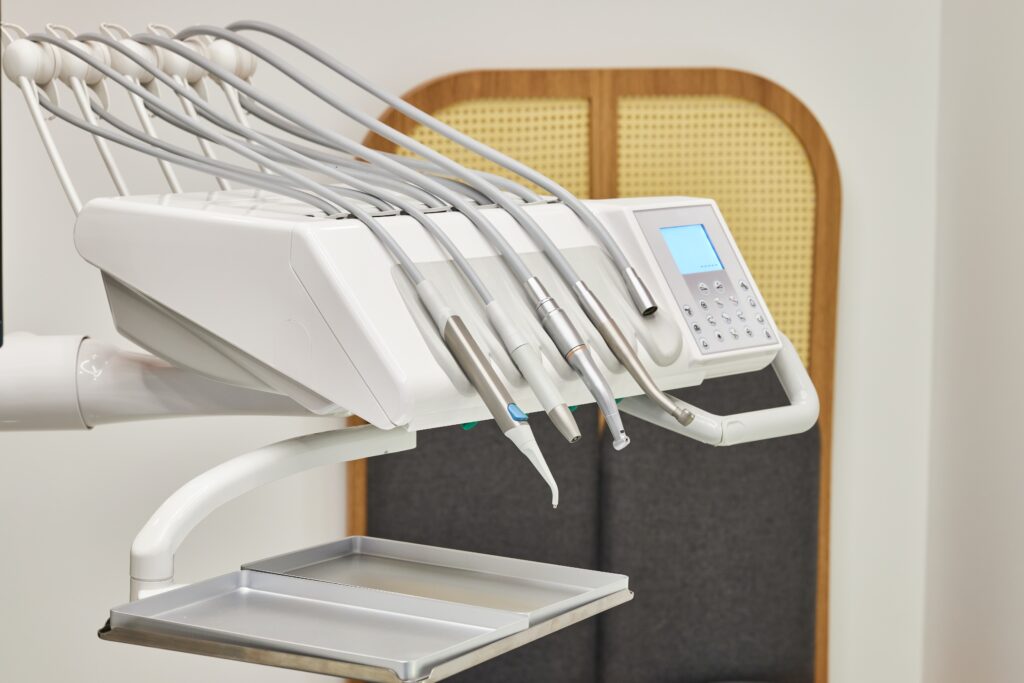Most common oral health problems can be prevented. Brushing your teeth twice a day, flossing daily, eating a healthy diet, and regular dental checkups are all essential for maintaining your oral health.
Educating yourself on common dental issues and their causes can also go a long way in preventing them. Let’s take you through some of the signs of common dental concerns, so that you know when it’s time to see a dentist.
10 Common Oral Health Problems You Shouldn’t Ignore
1. Tooth Sensitivity
Tooth sensitivity is something almost everyone experiences at some point or another. In fact, it affects millions of people. Sensitivity involves pain or discomfort caused by:
- Cold air
- Cold drinks
- Hot drinks
- Ice cream
- Sweets
People struggling with tooth sensitivity may experience pain when brushing and flossing. But this can be treated, so talk to a dentist about it. Sensitivity may also be a sign of a cracked or abscessed tooth – these will need to be treated by a dentist as soon as possible. Or you risk losing a tooth or getting an infection in your jawbone.
2. Bad Breath
Bad breath or halitosis can be extremely unpleasant and embarrassing. Some studies say a dental health condition is the cause of persistent bad breath in about 85% of people, including:
- Gum disease
- Cavities
- Oral cancer
- Dry mouth
- Bacteria on the tongue
Using mouthwash will only mask the odor caused by these problems. So, if you are experiencing chronic bad breath, it’s best to visit your dentist so they can identify the cause.
3. Tooth Decay
Tooth decay or cavities are the second most common oral health problem in the United States. When plaque combines with sugars and/or starches from the food you eat, it causes tooth decay. The combination produces acids that attack tooth enamel. Cavities don’t just affect children; you can get cavities at any age. Normal enamel erosion and aging can cause them, as does dry mouth due to age, illness, or medications.
The best way to prevent tooth decay and maintain your oral health is by brushing twice a day, flossing daily, and regularly visiting the dentist for checkups. It’s also important to avoid high-sugar snacks and drinks.

4. Tooth Erosion
Tooth erosion is when acid attacks the enamel and causes the loss of tooth structure. Symptoms range from tooth sensitivity to more severe oral health problems like cracking. Tooth erosion is common but also an easily preventable issue with proper oral care.
Early symptoms of tooth erosion:
- Discoloration
- Sensitivity
- Rounded teeth
- Transparent or sandblasted appearance
Advanced symptoms of tooth erosion:
- Cracked tooth
- Erosion lesions
- Extreme sensitivity
5. Gum Disease
Gum or periodontal disease is an infection in the gums surrounding your teeth, which is a major cause of adult tooth loss. The technical name for gum disease is gingivitis, while periodontitis is advanced gum disease.
Some studies show there may be a link between gum disease and heart problems. Every person is at risk of gum disease but it’s most common after 30. It also comes as no surprise, that smoking is a significant risk factor. Diabetes and dry mouth also increase your risk.
Symptoms of gum disease include:
- Bad breath
- Sensitive teeth
- Pain when chewing
- Red, swollen, tender or bleeding gums
Regular dental checkups, brushing, and flossing can prevent them.
6. Mouth Sores
While different types of mouth sores can be annoying, they’re typically nothing to be too concerned about, unless they last longer than two weeks.
Common mouth sores include:
- Canker sores or aphthous ulcers – these occur inside the mouth and not on the lips. They’re not contagious and can be triggered in several instances.
- Fever blisters or cold sores – caused by the Herpes simplex virus, these appear on the edge of the outer lips. They’re contagious and while they do come and go, they can’t be cured.
- Thrush or oral candidiasis – these yeast infection sores in the mouth occur in infants, denture wearers, people with diabetes, and people treated for cancer.

7. Oral Cancer
Oral cancer is a serious and deadly disease affecting millions of people around the world. More common after the age of 40, in the United States someone dies of oral cancer every hour. But this disease is often curable if diagnosed and treated in the early stages.
The biggest risk factors:
- Alcohol use
- Human papillomavirus (HPV)
- Smoking or chewing tobacco
The symptoms of mouth or throat cancer include:
- Sores
- Lumps
- Rough areas in the mouth
- Change in your bite
- Difficulty chewing or moving your tongue or jaw
Regular dental visits can help catch oral cancer early. Ask your dentist whether an oral cancer exam is part of their usual checkup.
8. Toothaches and Dental Emergencies
Dental emergencies can be painful and scary. Just like any emergency, they require urgent treatment.
Common oral health problems that require an urgent trip to the dentist include:
- A broken or cracked tooth
- An abscessed tooth
- Losing a tooth, knocked out in an accident
Get urgent medical attention for:
- A broken or dislocated jaw
- Severe cuts to your tongue, lips, or mouth
- A tooth abscess that causes difficulty swallowing
- Facial swelling
Call your dentist right away about any of these issues. Even on weekends and evenings, they should have someone on call to handle emergencies.
9. Dry Mouth
Often called xerostomia, dry mouth is a condition where saliva glands are not able to produce enough saliva to keep the inside of the mouth moist. Since saliva has antibacterial components that help keep plaque off of teeth, it plays an integral role in oral health. Dry mouth can be caused by several things like smoking, prescription medication, aging, or stress.
People who are on medication or chemotherapy are at a very high risk of dry mouth and the same goes for the older population.
Common symptoms of dry mouth range from simple to serious:
- Chapped lips
- Mouth sores
- Bad breath
- Gum irritation
- Burning feeling in the mouth
10. Root Infection
If you’ve ever heard of or had a root canal treatment, then you know a root infection is a serious oral health problem. It’s painful and very uncomfortable and occurs when bacteria infect the root of your tooth.
It enters the center of your tooth and attacks the pulp tissue inside. You might rule out your experience as a normal toothache, but eventually, an abscess will form indicating that the root infection has developed to a more severe case. While root canal procedures themselves aren’t painful, the healing phase is quite painful.
That’s why it’s important to see a dentist even if you have a toothache.
When To See A Dentist
If you are experiencing any of the symptoms listed above, it’s time to book an appointment to see your dentist. However, even if your oral health seems in order, it’s important to schedule regular checkups with your dentist – every six months – so they can ensure your oral health is at its optimal.
All of the most common oral health problems can be avoided if you:
- Brush your teeth twice a day
- Floss everyday
- See your dentist regularly
- Don’t smoke
- Get help for any problems you notice, such as mouth sores or rough spots
Find A Dentist Near You
It’s important to make appointments with a dentist when oral health problems appear or even better, before they do! Be sure to mention all the symptoms you’re experiencing for a more thorough exam and diagnosis. You can easily find a dentist near you through the Air Doctor app – just filter by location and language. Air Doctor is available on Android and iOS.











